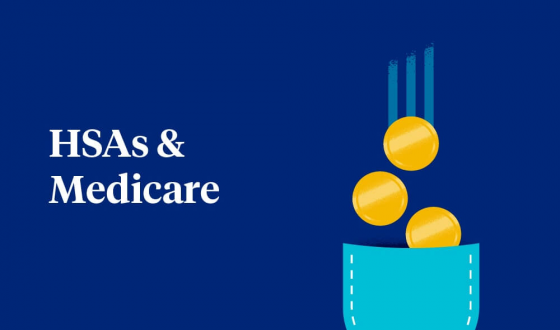
This article was originally published here
Congress is discussing if a Health Savings Account (HSA) would be authorized for Medicare recipients.
However, it would alter a few of the advantages of HSAs for those over 65.
The Health Savings for Seniors Act (H.R. 7435) was recently filed in the House of Representatives and is a bipartisan effort to allow Medicare beneficiaries to contribute to HSAs once again. As more people use HSAs with their workplace health plans, the number of people eligible for Medicare at age 65 is expected to rise.
Elizabeth Gavino, founder of Lewin & Gavino and an independent broker and general agent for Medicare insurance, noted that many customers who have opened HSAs assume they may continue contributing to the HSA after enrolling in Medicare.
What are the compromises made by the legislation? It would be impossible to pay Medicare premiums using HSA withdrawals, which are presently permitted. It would also abolish penalty-free withdrawals for non-medical costs for those 65 and older.
According to an estimate by financial consultancy Devenir, 32 million of these accounts will be by the end of 2021, an increase of 8% from 2020, with a total value of $98 billion. By 2024, the company expects that number to rise to 38 million accounts and $150 billion in assets.
Annual Contributions to HSAs
Individual HSA contributions are capped at $3,650, and family contributions are capped at $7,300 in 2022. (Next year’s limitations will be increased.) People over 55 can contribute an additional $1,000 yearly to their retirement accounts.
Withdrawals from HSAs are tax-free as long as they are used to pay for eligible medical expenditures, and contributions can be deducted from taxable income. According to a 2021 report from the Kaiser Family Foundation, over 28% of workers have such a plan, up from 17% in 2011.
A Health Savings Account (HSA) is only available to those with a high-deductible medical plan, and Medicare is not one of them. Health savings accounts (HSAs) can be used to pay medical bills, but beneficiaries cannot open a new HSA or make contributions to an existing one.
Medicare Part A (hospital coverage) and Part B (prescription drug coverage) can be signed up for at 65. However, many people continue to use their employer’s health plan in addition to Medicare (outpatient care). To continue making pretax contributions to an HSA, they must delay signing up for Medicare if the employer plan is high-deductible.
High-Deductible Health Plan for 2022
High-deductible health plans in 2022 must-have deductibles of at least $1,400 for an individual or at least $2,800 for family coverage and annual out-of-pocket payments (not including premiums) of no more than $7,050 (for an individual) and $14,100 (for a family), respectively (family plan). Out-of-pocket expenses are not included.
Medical Savings Accounts (MSAs), comparable to Health Savings Accounts (HSAs), are available under the Medicare program, although just 5,600 beneficiaries were enrolled in health plans that utilized them in 2019.
Some Medicare beneficiaries may choose a high-deductible Medicare Advantage Plan that includes one of these MSAs. Individuals cannot make contributions to these accounts. However, you can take tax-free withdrawals from the plan to pay for medical expenditures, which may fluctuate yearly depending on the insurer.
Contact Information:
Email: [email protected]
Phone: 2129517376
Bio:
M. Dutton and Associates is a full-service financial firm. We have been in business for over 30 years serving our community. Through comprehensive objective driven planning, we provide you with the research, analysis, and available options needed to guide you in implementiong a sound plan for your retirement. We are commited to helping you achieve your goals. Visit us at M. Dutton and Assoiciates.COM. Tel. 212-951-7376: email: [email protected]






 Financial Media & Marketing, LLC,
Financial Media & Marketing, LLC,